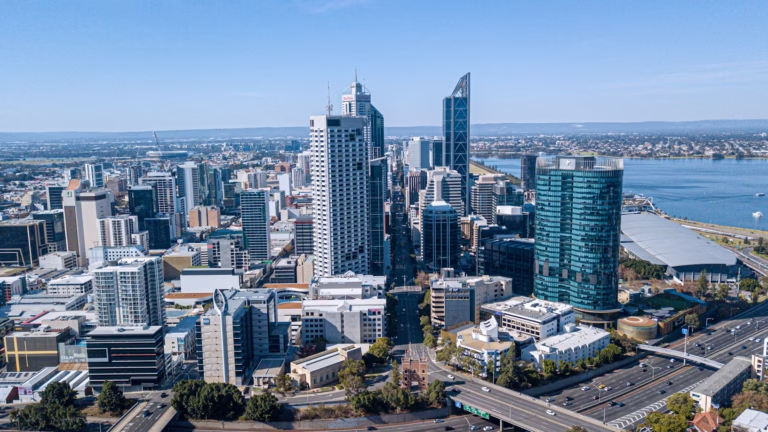In any organisation, having well-defined processes and protocols is essential for smooth operations. This is especially true when it comes to security. Security Standard Operating Procedures (SOPs) provide clear, step-by-step guidelines for managing security risks, responding to incidents, and ensuring the safety of employees, assets, and information.
At Smartsec Security Solutions, we specialise in helping businesses develop and implement effective security SOPs that address their unique risks and operational needs. By establishing comprehensive procedures, businesses can improve their security posture and ensure consistent responses to potential threats.
In this article, we’ll explore what security standard operating procedures are, why they are essential, and how to implement them effectively to enhance your organisation’s security.
What Are Security Standard Operating Procedures (SOPs)?
Security Standard Operating Procedures (SOPs) are formal, written instructions that outline the specific steps employees and security personnel should follow to manage and respond to security-related incidents. These procedures are designed to ensure a consistent, effective approach to handling security threats, emergencies, or routine operations.
SOPs cover various aspects of security, including access control, incident response, surveillance monitoring, and emergency evacuations. By documenting these procedures, businesses create a clear framework that guides employees on what actions to take in different scenarios, ensuring everyone is aligned with the organisation’s security objectives.
Why Are Security SOPs Important?
Implementing security standard operating procedures is crucial for several reasons. Well-defined SOPs not only enhance the overall security of a business but also provide clarity, consistency, and accountability. Here are some key reasons why security SOPs are important:
1. Consistent Response to Security Incidents
Without clear protocols, employees may react to security incidents in an inconsistent or ineffective manner. This can lead to confusion, delays, and potential escalation of a situation. With security SOPs, everyone knows their role and responsibilities during an incident, ensuring a coordinated and efficient response. Whether it’s responding to a break-in, managing an emergency evacuation, or handling unauthorised access, having predefined procedures allows for swift and consistent action.
2. Minimising Risk and Reducing Human Error
Security breaches often occur due to human error or oversight. Well-documented security SOPs minimise these risks by providing step-by-step instructions that leave little room for mistakes. When employees and security personnel follow established protocols, the risk of oversight or improper action is significantly reduced, helping to prevent incidents before they escalate.
3. Ensuring Compliance with Regulations
Many industries are required to comply with specific security regulations and standards, especially those dealing with sensitive data or high-value assets. Having formal security standard operating procedures helps businesses meet these regulatory requirements, reducing the risk of legal issues or fines. SOPs ensure that security measures align with industry standards and best practices, providing documentation in case of audits or inspections.
4. Training and Onboarding
Security SOPs play a crucial role in training new employees and onboarding security personnel. They provide a clear framework for how to perform security tasks and respond to incidents, making it easier for new team members to understand their responsibilities. SOPs also serve as a reference point for ongoing training, ensuring that all staff members are up to date on security procedures.
5. Enhancing Business Continuity
Security incidents, if not handled properly, can disrupt business operations. Security SOPs ensure that incidents are managed in a way that minimises downtime and damage, allowing businesses to maintain continuity. For example, in the event of a fire or security breach, having clear evacuation procedures and communication protocols ensures that employees and visitors are moved to safety quickly, and the incident is contained with minimal impact on operations.
Key Components of Effective Security SOPs
Developing comprehensive security standard operating procedures requires careful planning and attention to detail. While the specifics will vary depending on the industry, location, and size of the business, there are several key components that every effective security SOP should include:
1. Access Control Procedures
Access control is a critical aspect of security for most businesses. Security SOPs should outline how access to buildings, restricted areas, or sensitive information is managed. This includes guidelines on how to issue and revoke access credentials, manage visitor logs, and enforce security checks at entry points. Procedures should also cover how to respond to unauthorised access attempts or breaches.
2. Incident Response Protocols
Effective security SOPs must include detailed incident response protocols for various types of security incidents. This could include dealing with theft, vandalism, unauthorised access, or more serious threats such as active shooters or bomb threats. The procedures should outline who is responsible for each aspect of the response, how to communicate during the incident, and what steps to take to contain or resolve the situation.
3. Emergency Evacuation Procedures
In the event of a fire, natural disaster, or other emergencies, it’s crucial to have clear evacuation procedures in place. Security SOPs should include step-by-step instructions on how to evacuate the building safely, designate assembly points, and assign responsibilities for coordinating the evacuation. Procedures should also cover how to assist individuals with special needs or mobility challenges during an evacuation.
4. Surveillance and Monitoring
For businesses that use surveillance cameras or monitoring systems, security SOPs should define how these systems are managed. This includes guidelines for monitoring live footage, reviewing recorded footage, and reporting suspicious activity. SOPs should also cover how to maintain and troubleshoot surveillance equipment to ensure continuous operation.
5. Communication Protocols
Clear communication is essential during security incidents. Security SOPs should establish communication protocols, outlining who is responsible for notifying authorities, internal stakeholders, and external parties (such as emergency services) during an incident. Procedures should also specify how information is shared with employees, ensuring that messages are clear, accurate, and timely.
6. Training and Drills
SOPs should include guidelines for regular security training and drills to ensure that all employees understand and can implement the procedures. Regular training keeps staff prepared for incidents, while drills help them practice key responses, such as evacuations or lockdowns. These exercises are essential for identifying areas that may need improvement and ensuring the effectiveness of the SOPs.
How Smartsec Security Solutions Can Help
At Smartsec Security Solutions, we offer expert consultation on developing security standard operating procedures tailored to your business’s specific needs. Our goal is to help businesses create clear, actionable procedures that enhance security, protect assets, and ensure compliance with regulations.
Why Choose Smartsec Security Solutions?
- Independent Expertise: We provide unbiased, professional advice based on your specific security requirements.
- Tailored SOP Development: Our security SOPs are customised to address the unique risks and operational needs of your business.
- Comprehensive Service: From access control to emergency response and staff training, we cover all aspects of security procedures to ensure your business is well-prepared.
- Local Knowledge: Based in Western Australia, we understand the security challenges businesses face in the region and offer solutions that comply with local regulations.
To learn more about how we can assist with developing security standard operating procedures, visit our services page or contact us for a consultation.
Conclusion
Security standard operating procedures are a vital tool for ensuring that businesses can respond effectively to security incidents and manage risks in a consistent, organised manner. By developing clear, well-defined SOPs, businesses can minimise human error, ensure regulatory compliance, and protect their employees, assets, and reputation.
At Smartsec Security Solutions, we help businesses across Western Australia implement comprehensive security SOPs that are tailored to their unique needs. For more information or to schedule a consultation, visit our services page.



